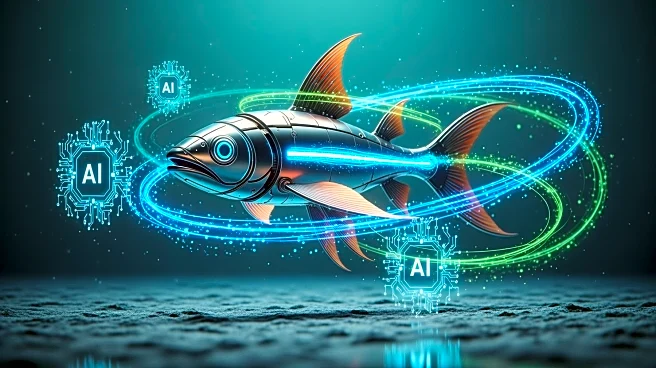What's Happening?
Excel Career College on Vancouver Island has launched a pioneering AI in Aquaculture program to prepare workers for the evolving seafood farming industry. The program integrates traditional aquaculture
practices with advanced AI tools, such as underwater cameras and machine learning, to monitor fish health and environmental conditions. This initiative aims to equip students with the skills needed to support sustainable aquaculture, blending hands-on experience with digital monitoring and environmental stewardship. The program includes practicum placements with industry partners, allowing students to apply their learning in real-world settings.
Why It's Important?
The introduction of AI in aquaculture represents a significant shift towards more sustainable and efficient seafood farming practices. By training a new workforce adept in both traditional and digital methods, the program addresses the growing demand for skilled professionals in the industry. This development is crucial for maintaining the health of marine ecosystems and ensuring the long-term viability of aquaculture as a key economic sector. The program's focus on environmental stewardship and ethical use of technology highlights the importance of balancing innovation with ecological responsibility.
What's Next?
The success of the AI in Aquaculture program may lead to its expansion across Canada, potentially influencing national aquaculture training standards. As graduates enter the workforce, they are expected to drive innovation and sustainability in the industry, fostering collaboration between technology firms, research labs, and community initiatives. The program's emphasis on ethical and transparent use of AI tools could set a precedent for other sectors integrating technology with environmental management.
Beyond the Headlines
The program's approach to merging technology with environmental stewardship raises important ethical considerations. It challenges students to think creatively and collaboratively, ensuring that AI applications are used responsibly in coastal communities. This focus on ethical discernment may influence broader discussions on the role of technology in environmental conservation and the importance of integrating Indigenous knowledge in sustainable practices.











